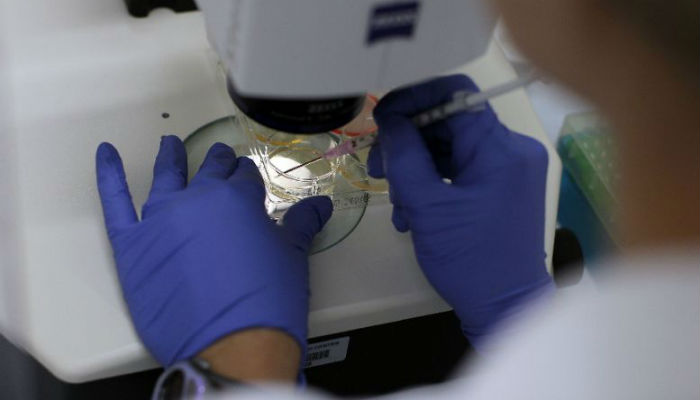Stem cell transplant offers hope for scleroderma patients
January 04, 2018

MIAMI: A stem cell transplant works better than medicine to extend the lives of people with scleroderma, an autoimmune disease in which the skin hardens and organs break down, researchers said Wednesday.
The findings in the New England Journal of Medicine point to a new way of treating the incurable disease, which affects some 2.5 million people worldwide, most of them women of childbearing age.
"Scleroderma hardens the skin and connective tissues and in its severe form leads to fatal organ failure, most often the lungs," said lead author Keith Sullivan, professor of medicine and cellular therapy at Duke University.
"In these severe cases, conventional drug therapies are not very effective long-term, so new approaches are a priority."
The study randomly assigned 36 scleroderma patients in the United States and Canada to receive a stem cell transplant. First, they had to undergo high-dose chemotherapy and whole-body radiation to fully wipe out their malfunctioning immune system.
Then they were re-infused with their own blood stem cells that had been removed and treated to eliminate the faulty white blood cells.
Another 39 patients were randomly assigned to get 12 monthly intravenous injections of cyclophosphamide, which is the conventional immune-suppressing treatment for severe scleroderma.
Patients who underwent the stem cell transplant saw "significantly improved survival," said the study, which spanned 10 years and was carried out at 26 universities in the United States and Canada.
Patients in the stem cell group were more likely to see improvements in survival, organ function, quality of life and skin hardening.
"Overall survival at 72 months was 86 percent after transplant versus 51 percent after cyclophosphamide," said the report.
"These results show that individuals with poor-prognosis scleroderma can improve and live longer and that these advances appear durable," Sullivan said.
At the end of the study, just nine percent of the transplant group went back to taking anti-scleroderma drugs, compared to 44 percent in the control group.
The stem cell treatment carried a higher risk of death, however, along with more serious side effects in the short-term, including infections and low blood counts.
After 54 months, three percent of the transplant recipients died. No one in the cyclophosphamide group died from the treatment.
"Patients and their doctors should carefully weigh the pros and cons of intensive treatment with stem cell transplant, but this may hopefully set a new standard in this otherwise devastating autoimmune disease," Sullivan said.











